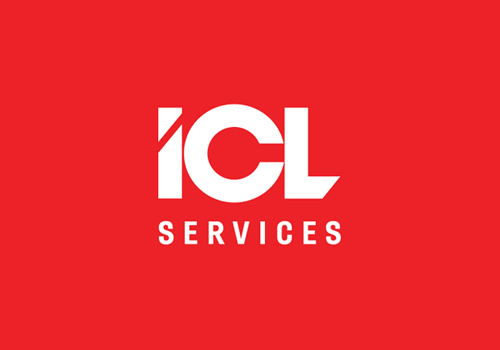Готово!
Скоро материал придет на указанную электронную почту. Также подписывайте на нас в Facebook
Ok
Five Guidelines for Renegotiating Outsourcing Contracts
As CIOs and other business leaders embark on a new year, many are asking themselves whether their outsourcing relationships continue to be a good fit or whether they are getting the best value for their money. Many companies simply will be renewing legacy contracts, but others will be driven to the negotiating table because of turbulence in their current outsourcing relationships.
Regardless of the reason, a properly approached and conducted renegotiation may better align the client’s changing needs with the provider’s evolving skillset, and may ultimately benefit both parties. To make the most out of renegotiation, companies should keep several guidelines in mind during the process.
Formulate clear goals for the renegotiation and bring them to the table. A company should assess its short-term and long-term goals for the outsourcing relationship, independent of the pressures of an expiring contract. For example, is the company dissatisfied with the currently adopted metrics for evaluating the provider’s performance? Does the company want to adopt new technologies used in the industry? Does the business want to move toward “as-a-service” or cloud offerings?
Then, the business must have an open discussion with the provider about these goals. Legacy agreements may not be flexible enough to adapt to changing business and technology demands, making it especially important for the company to clearly articulate what it wants out of a restructured contract. Ideally, the company should enter into the renegotiation process with a focused list of “must haves,” and avoid falling into the trap of simply discussing the need to improve service quality generally and reduce costs. When price is a renegotiation topic, be sure to have a frank discussion—including demanding a breakdown of pricing from the provider.
Build consensus in-house before approaching the provider. Regardless of the ultimate outcome of any renegotiation, it is important to engage, from the beginning, all parties inside the company that are affected by the current outsourcing arrangement. Key decision-makers and senior management should be familiar with the goals and progress of the renegotiation so they won’t be surprised when it comes time to signing a new deal. Likewise, individuals “on the ground” will have valuable insight on how the outsourcing relationship can be transformed to better fit the company’s demands. Having broad agreement on the renegotiation’s goals allows the company to make an easier transition should any changes be necessary—things run more smoothly if everyone involved has already “bought into” the plan.
Once consensus has been reached, but before approaching the provider, the company should also create a formal contract management process. This should include a comprehensive contract documentation system for tracking amendments, waivers, or other changes to the original agreement, and implementing policies whereby only certain authorized personnel may approve such changes.

Avoid operational risk. While some amount of give and take will occur during renegotiation, providers are unlikely to agree to any drastic changes in their operating models. Rather than forcing the provider to stake out unfamiliar territory (which may ultimately produce bad results for both sides), the company should ask whether the provider’s current operating model will fit the company’s needs in the future. A deep dive into the provider’s operations should include an assessment of whether the provider would be a good fit several years down the road. Chances are the provider extends the same mature operating model to multiple customers, which creates a larger sample size for determining the pros and cons of renewing the relationship.
Conduct market research. Companies should research prevailing market conditions and best practices, and assess the competitiveness of its existing outsourcing deal. Contracts inked years ago may have been conceived in “another era” in technological terms, and may not address new innovations. Companies may also discover that other providers offer discounts that may be leveraged into a lower price during renegotiations. In addition, shopping around may provide useful insight into alternative provider options should the renegotiations prove unsuccessful. Information is power at the negotiating table.
Protect yourself and engage outside expertise. In addition to retaining and engaging internal expertise, a company should also engage capable outside advisors before and during the renegotiation process. These experts will ensure that the company is protected both in the negotiations and in the future should the outsourcing relationship deteriorate. They may include outside advisory firms that specialize in renegotiating outsourcing contracts and outside legal counsel that understand the future implications of nuanced contract terms. Counsel can also advise the company on how to best protect its attorney-client privilege during renegotiation and in the future. And, of course, counsel can provide guidance regarding termination and dispute resolution as options if the renegotiation turns sour.
Christopher A. Seidl and Li Zhu are attorneys at Robins Kaplan LLP. They are part of the firm’s Global Business and Technology Sourcing practice group, and their practices include helping clients avoid outsourcing disputes and resolving disputes when they arise.
Related news
- 12 January
7 main 2015 trends: where is it outsourcing moving?
What will happen to IT outsourcing market in 2015? How will it change, where is it moving and what awaits its customers?
- 4 December
General Director tips - interaction with it during the crisis: what to outsource?
The crisis makes you save on everything. A company wants to maintain high growth rates and reduce expenses. IT outsourcing is a good idea for this.
- 13 February
How to choose a provider of IT services?
Choosing a reliable provider of IT services — this is an important and responsible task. One way to solve it is professional advice from the experts who have advanced level of experience in IT industry, especially in the field of the implementation of major projects.
- 28 April
IT outsourcing is an effective way of business development in retail
Head of retail solutions Galina Musina talks about the benefits of IT outsourcing in the interview to Cnews.
- 14 October
4 tools to enhance customer-oriented approach in IT outsourcing
Represent several tools, or technologies, that will enable the company to be more focused on the client’s interests.
- 25 November
Results and forecasts of the russian IT outsourcing market
Introducing the main short-term drivers, challenges and trends in the Russian IT outsourcing market.
- 3 May
How to choose the best IT outsourcing Provider?
Sometimes outsourcing a particular project makes the most sense. Whatever your reason or reasons are for outsourcing, it is still important to properly manage the project, select the right Provider for the job and ensure all of the key elements are addressed.
- 31 March
How to manage software assets?
ICL Services participated in SAMday-2016 on software asset management
- 27 April
Who is faster: clouds vs it market?
The demand for cloud computing in Russia is real.
- 11 May
6 main software development books
Andrey Krehov — Deputy Director for Special Programs in ICL Services — has created a list of major books among the "untested newcomers" that should not be missed and some "must-haves"
Stay informed
Subscribe to our newsletter and keep up with our latest news

